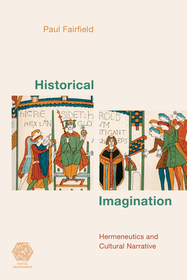
- Publisher's listprice GBP 30.00
-
14 332 Ft (13 650 Ft + 5% VAT)
The price is estimated because at the time of ordering we do not know what conversion rates will apply to HUF / product currency when the book arrives. In case HUF is weaker, the price increases slightly, in case HUF is stronger, the price goes lower slightly.
- Discount 13% (cc. 1 863 Ft off)
- Discounted price 12 469 Ft (11 876 Ft + 5% VAT)
Subcribe now and take benefit of a favourable price.
Subscribe
14 332 Ft

Availability
Estimated delivery time: In stock at the publisher, but not at Prospero's office. Delivery time approx. 3-5 weeks.
Not in stock at Prospero.
Why don't you give exact delivery time?
Delivery time is estimated on our previous experiences. We give estimations only, because we order from outside Hungary, and the delivery time mainly depends on how quickly the publisher supplies the book. Faster or slower deliveries both happen, but we do our best to supply as quickly as possible.
Product details:
- Publisher Bloomsbury Publishing (UK)
- Date of Publication 29 January 2025
- Number of Volumes Paperback
- ISBN 9781538156551
- Binding Paperback
- No. of pages176 pages
- Size 228.6x158.5x19.304 mm
- Weight 440 g
- Language English
- Illustrations 2 tables; 633
Categories
Long description:
Historical Imagination defends a phenomenological and hermeneutical account of historical knowledge. The book's central questions are what is historical imagination, what is the relation between the imaginative and the empirical, in what sense is historical knowledge always already imaginative, how does such knowledge serve us, and what is the relation of historical understanding and self-understanding? Paul Fairfield revisits some familiar hermeneutical themes and endeavors to develop these further while examining two important periods in which historical reassessments or re-imaginings of the past occurred on a large scale. The conception of historical imagination that emerges seeks to advance beyond the debate between empiricists and postmodern constructivists while focusing on narrative as well as a more encompassing interpretation of who an historical people were, how things stood with them, and how this comes to be known. Fairfield supplements the philosophical argument with an historical examination of how and why during late antiquity, early Christian thinkers began to reimagine their Greek and Roman past, followed by how and why renaissance and later enlightenment figures reimagined their ancient and medieval past.
MoreTable of Contents:
Introduction: Changing the Record
Chapter 1: Historical Imagination I: Interpretation, Narrative, Constructivism
Chapter 2: Historical Imagination II: Evidence and Intentionality
Chapter 3: Early Christian Reimaginings
Chapter 4: Renaissance Reimaginings
Chapter 5: Enlightenment Reimaginings
Chapter 6: Historical Imagination and Cultural Studies
Conclusion




